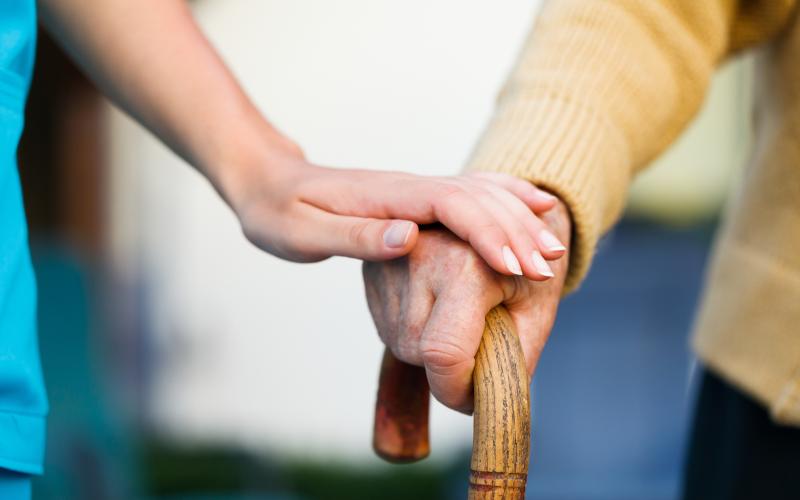
One of the most common questions clients have is how to protect their assets from the increasing cost of care should they require to go into a home. There is so much heard and read about passing ownership of the family home to avoid paying for the cost of care. Taking this important step should not be taken without being aware of all the possible implications. What might work for one person, might not work for another and people need to be sure that they are aware of all the options available before deciding on the best course of action.
While the concern regarding care costs increases, studies have shown that only around one in 4 elderly adults in the UK will require residential care and that the average length of stay in care is around 2 years. If you do require to go into residential or nursing care, the Local Authority have a duty to provide a place in a home. When you go into a home, the Local Authority will carry out a number of assessments to determine the level of care required and who should be liable for the cost.
Local Authority Considerations
The financial assessment that the Local Authority complete will look at both an individual’s income and savings. Income, such as pension payments, will be considered in the first instance and where the individual’s income is insufficient to meet the accommodation costs, their capital will also be assessed to meet the balance. The current levels that the Local Authority will consider are as follows:-
1. If you have any assets over £32,750 then you will be liable for all care home fees. You will be classed as ‘self-funding’.
2. If you have assets between £32,750 and £20,250 then you will be assessed on a tariff income. This is where the Local Authority look at the value of your assets above £20,250 and for every £250 above this limit you will be given £1 towards your care home fees.
3. If you have assets below £20,250 then you will have your care home fees paid for you by the Local Authority. You will be classed as ‘publicly-funded’.
Therefore, where an individual has a modest income and owns their own home, it is highly likely that they will be assessed as ‘self-funding’. In this case, it often means that the property would either require to be sold to fund the cost of care or, the Local Authority may agree to contribute towards the care home fees in return for a charging order being placed over the home to allow them to recover their contributions from the individual’s estate following their death.
What can you do?
There are ways in which your capital can be protected from being used to fund potential future care costs. You may think that the simplest action you could take is gifting some of your capital, such as your house, onto those loved ones who you ultimately wish to inherit your estate. As the legislation stands at present, if such a gift was made and you did not require residential or nursing care within 6 months of making the gift, the Local Authority could not recover the value of the gift from those now in receipt of it. The local authority can however, even after the 6-month mark, add the value of the gifted capital back into their assessment when determining the value of your estate, if they are of the view that the gift was made to deliberately reduce your asset position to obtain financial support towards care home costs.
Many clients ask about gifting their home to the next generation. There are considerable risks however when making an outright gift of your property to an individual that we urge you to bear in mind. For example, if the individual fell into financial difficulties, it may be the case that the capital gifted to them would require to be used to recover their debts. The individual may die before you leaving your property to someone else entirely. There may be a disagreement between you where they would ask you to leave or, in the event that the individual runs into matrimonial difficulties, the property may be taken into account in the division of any matrimonial property between the individual and their spouse.
Rather than gifting your house or any other assets to a particular person, you may wish to consider placing assets into a Trust. Putting assets in Trust affords more protection as it is unlikely that the Trust will run into the difficulties discussed. There are different types of Trust arrangements and the suitability of those will depend upon the individual’s circumstances. A common form of Trust used is known as a Liferent Trust. If you are a married couple that own your own property, by reviewing your Wills, it is also possible to protect part of the value of your property from care home fees using a Liferent Trust in your Will. While this only protects part of the value of your property, it is not as risky as an outright gift and once the property is transferred into the Trust, the survivor of you will enjoy the use of the property as before. The Trustees are responsible for the running of the Trust and when the Trust comes to an end, ownership will pass to your nominated beneficiaries. If, however, both of you go into care it will not provide any protection against a financial assessment at this stage.
Everyone’s situation is different, whether personal, family or financial and there are a variety of options available. I you would like to discuss which one is best for you, please contact the Private Client team on 03330 430150.
